#Mohammad Valizadegan
Text
There Is No Evil

There Is No Evil [trailer]
A film in four chapters, each telling a different story related to the death penalty in contemporary Iran.
Very interesting stories, especially since I knew nothing about how the death penalty gets executed in Iran.
Due to the general topic of the film, I guessed where the first story was going. But the casualness is still hard to comprehend.
I didn't expect to hear Milva's version of Bella ciao.
Always worth mentioning that regarding the death penalty the United States enjoys being in the company of countries like China, Iran, Egypt, Irak and Saudi-Arabia.
#There Is No Evil#Sheytan vojud nadarad#Mohammad Rasoulof#Ehsan Mirhosseini#Shaghayegh Shourian#Kaveh Ahangar#Mohammad Valizadegan#Mahtab Servati#Baran Rasoulof#Zhila Shahi#foreign#Iran#like#recommended
2 notes
·
View notes
Text
Berlin Review: There Is No Evil is a Major Work of Iranian Cinema and a Testament to the Oppressed
Ed Frankl
February 29, 2020

Iranian director Mohammad Rasoulof won Cannes’s Un Certain Regard award in 2017 with his bruising, brilliant drama A Man of Integrity, which explored how an oppressive regime crushes independent thought. On his return to his home nation, he was arrested, thrown in prison for a year, banned from leaving Iran, and forbidden from filmmaking for life. Not that it stopped him. Just three years later, he’s made a major work of recent Iranian cinema. Not since A Short Film About Killing has a filmmaker produced such a thrilling case against capital punishment, an enraging, enthralling, enduring testament to the oppressed.
With There is No Evil, Rasoulof has secretly filmed an anthology film of four stories–apparently because Iranian authorities are less concerned with short films than features. And yet even with those difficulties, the director has produced a work of clarity that should rank him alongside Golden Bear winner Panahi as a chronicler of the livelihoods of those under Iranian repression.
Iran executes a higher number per capita than anywhere else, according to The Economist, and the stories here revolve around capital punishment, although the directness in which the subject is addressed is fluid. The philosophy or morals of the death penalty is not always what is at play in each story. The film’s intention is more to address the question of “What would you do in their position?” Rasoulof’s point is that oppressive regimes create a society in which freedom to decide is forbidden not just in a practical way by means of laws, but it encroaches on the thoughts you process–the inability to decide for yourself almost becomes a psychological state.
The executioners here aren’t bad people–sometimes, as in the case of conscripted soldiers in military service, it is plainly absurd that they have to carry out executions. It is the system that puts them in these unenviable positions, in Rasoulof’s words, a result of being part of the “machine of autocracy.” But the film also argues that they aren’t blameless either. These characters are in a position to say no. They can defy their orders if they want to, despite the pain of the consequences of their actions.
The four stories are dexterous in their use of genres: the first is a slow-burning domestic drama about a bored, depressed (or is that shell-shocked?) father (Ehsan Mirhosseini), which concludes with an astonishing, shocking coup de cinema. The second is in turns a thriller and an upturned prison-breakout movie. The third presents a beautiful, sad romance between a couple (the excellent Mohammad Valizadegan and Mahtab Servati), that shows deftly that the political is personal. And the fourth a cross-borders tale that explores duty and family, with a provocative, open, questioning finale. Rasoulof knows just when to bring in political discussion and when to leave unbroken, more ruminative stretches in which images fill the gaps.
Each sequence has outstanding moments. The first carries an extraordinary power in its creeping terror of the banality of evil. The second, in which the conscripted executioner is more distraught than the condemned, ends with a glorious, hopeful, but undoubtedly melancholy sequence, to the tune of the Italian anti-fascist anthem Bella Ciao. And the third and fourth revolve around narrative twists that, while signaled somewhat in advance, are startlingly moving. And while anthology formats often distract from a convincing, natural narrative, there is a clear sense that these disparate stories are not unconnected, much like Kieslowski’s Dekalog, of which A Short Film about Killing is a part.
The film was inspired, according to the press notes, by Rasoulof spotting his former interrogator at the bank. Instead of approaching him to “angrily scream at him,” he couldn’t see in him “an evil monster.” Indeed, what we can see in these flawed characters is not the personification of evil, but the way acts of evil perpetrated by a state have corrosive consequences for those who carry out their duties. It makes it something of a secular companion piece to Terrence Malick’s recent A Hidden Life. Evil, in Rasoulof’s terms, is born of an individual’s lack of defiance against the things they think are wrong. But as the director, now under permanent house arrest, will attest, the consequences of taking a stand are never straightforward.
There Is No Evil premiered at the Berlin International Film Festival.
Grade: A-
0 notes
Text
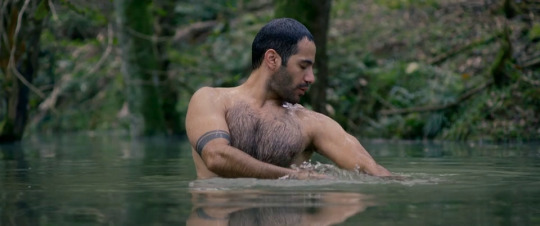
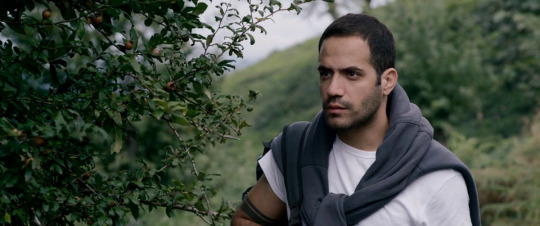
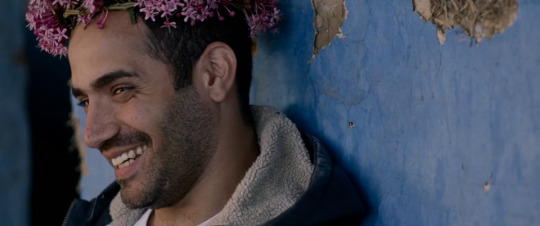
Mohammad Valizadegan (There Is no Evil, 2020)
#Mohammad Valizadegan#there is no evil#iran#iranian cinema#film#movie#boy#man#guys on film#mohammad rasoulof#berlin film festival#golden bear
46 notes
·
View notes
Text
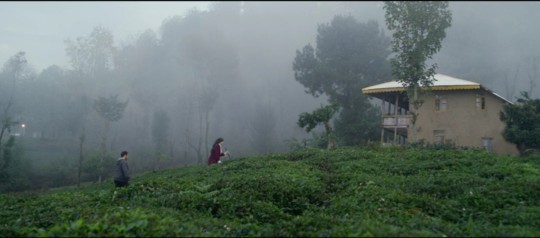


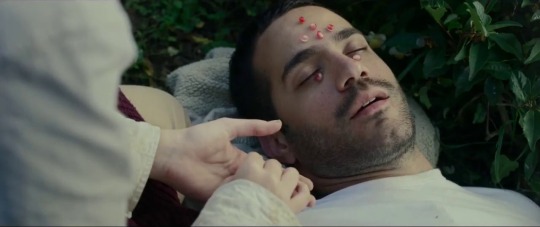
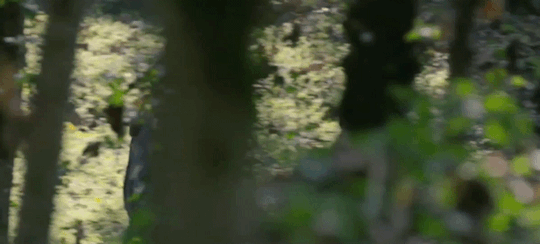
#There Is No Evil#شیطان وجود ندارد#لا وجود للشيطان#مطلق خير#Mahtab Servati#Mohammad Valizadegan#mything#فيلم
10 notes
·
View notes
Photo

There Is No Evil
directed by Mohammad Rasoulof, 2020
#There Is No Evil#Mohammad Rasoulof#movie mosaics#Mahtab Servati#Mohammad Valizadegan#Mohammad Seddighimehr#Ehsan Mirhosseini#Kaveh Ahangar#Jila Shahi#Baran Rasoulof
6 notes
·
View notes
Photo
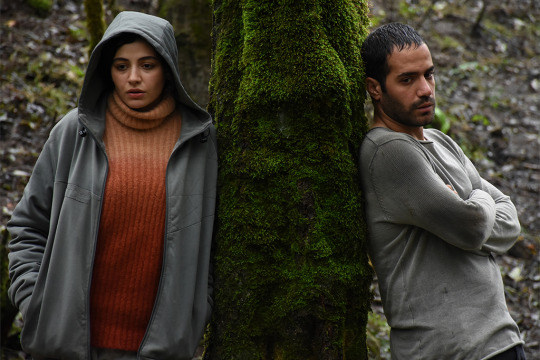
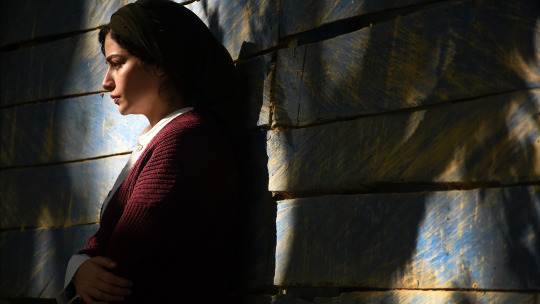

5
Yarın çok geç – ey sevgili
Yarın tabutu her bir bugünün
Bugün için bugündür gerçek
Ey sevgili – sevmek gerçek
Unutmak gerçek
Ey sevgili
Başlangıcı bugün başlayan ölümün
6
Korku var içimizde – korku aramızda
Ve biziz özlemlerimizle gerçek
- Özlemlerimiz korkuyla mühürlü
Korkuyla kararmış kalmış
Korkuyla ölüme varmış
Kara günde doğmuşuz çünkü biz
Bütün özlemlerimiz ölmek için gayrı
Zahrad, Ferah Tut Yüreğini s.52 “Kara Şarkılar”
Fotoğraflar: Muhammed Resulof’un 2020 yapımı, “There Is No Evil” filminden, (Baran Rasoulof & Mohammad Valizadegan).
#muhammed resulof#zahrad#ferah tut yüreğini#kara şarkılar#شیطان وجود ندارد#sheytan vojud nadarad#mahtab servati#mohammad valizadegan
18 notes
·
View notes
Text
online HD ]] Nincs gonosz teljes film ~2020|ONLINE VIDEA HU
online HD ]] Nincs gonosz teljes film ~2020|ONLINE VIDEA HU
sok filmvetítést elhalasztottak, sőt a Covid-19-es járvány miatt a mozikban sem sikerült bemutatni. De az interneten a hírek és még a filmvetítések sem fognak akadályokat felvenni. a héten bemutatott filmek egyike
Nincs gonosz
nézd a [Nincs gonosz] -t online ingyen (2020) stream teljes film. Nézd a Nincs gonosz 2020 teljes filmet ingyen online streaming letöltéssel, angol felirattal Nincs gonosz 2020 720p, 1080p, brrip, dvdrip, kiváló minőségű.
| 4K UHD | 1080P FULL HD | 720P HD | MKV | MP4 | FLV | DVD | Blu-Ray |
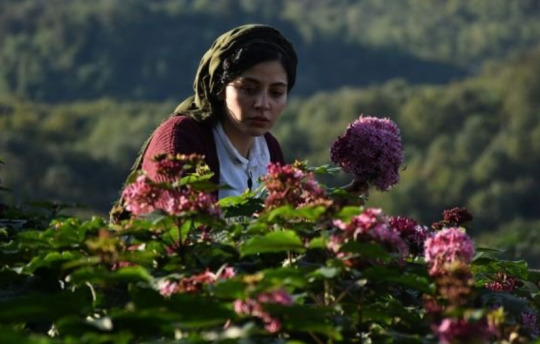
🍿 őrzésre ▷ http://filmek.videaflix.com/film/Nincs gonosz
################################
Premier (HU): 2020.10.15. | Cirko Film
Dráma
RENDEZŐ: Mohammad Rasoulof
ÍRÓ: Mohammad Rasoulof
ZENE: Amir Molookpour
SZEREPLŐK: Baran Rasoulof, Mohammad Seddighimehr, Zhila Shahi, Mahtab Servati, Mohammad Valizadegan, Kaveh Ahangar
Négy történet, mind ugyanannak a főtémának a variációja: erkölcsi tartás, az egyén szabadsága. A film az Iránban máig érvényben lévő halálbüntetés kapcsán e négy epizódon keresztül boncolgatja az egyéni felelősség és a döntési folyamatok problémakörét egy zsarnoki rendszerben.
Mohammad Raszulof iráni ellenzéki rendező Nincs gonosz című alkotása nyerte a legjobb filmnek járó Arany Medve díjat a 70. Berlini Nemzetközi Filmfesztiválon. A rendező nem tudott részt venni a díjkiosztó gálán, mert az iráni hatóságoktól nem kapott utazási engedélyt. Helyette lánya vette át az elismerést Berlinben. A film az Iránban máig érvényben lévő halálbüntetés kapcsán négy epizódon keresztül boncolgatja az egyéni felelősség és a döntési folyamatok problémakörét egy zsarnoki rendszerben. 2015-ben szintén hazájában betiltott iráni rendező vehette át az Arany Medvét Berlinben: Dzsafar Panahi Taxi Teherán című filmje is a Cirko Film forgalmazásában került a magyar mozikba, a filmet hónapokon át vetítették nagy sikerrel hazánkban.
címke
Nincs gonosz teljes film
Nincs gonosz előzetes magyarul
Nincs gonosz ingyen letöltés
Nincs gonosz netmozi
Nincs gonosz teljes film HD
Nincs gonosz magyar premier
Nincs gonosz film online
Nincs gonosz teljes film
Nincs gonosz teljes film videa
Nincs gonosz indavideo
Nincs gonosz magyarul online
Nincs gonosz teljes film magyarul indavideo
Nézze meg Nincs gonosz teljes film
Nézze meg Nincs gonosz teljes film online
Nézze meg Nincs gonosz a teljes cHD 1080p filmetac
Nincs gonosz teljes film
Nincs gonosz (2020) ingyenes online — ovguide
Nincs gonosz teljes film ingyenes letöltés
Nincs gonosz teljes film 123 film
nézd meg a Nincs gonosz teljes film
❍❍❍ Köszönöm mindenkinek és boldog nézést ❍❍❍
Találd meg az összes olyan filmet, amelyet online közvetíthetsz, beleértve azokat is, amelyeket ezen a héten vetítettek. Ha kíváncsi arra, mit nézhet meg ezen a weboldalon, akkor tudnia kell, hogy azok olyan műfajokra terjednek ki, amelyek magukban foglalják a krimi, a tudomány, a Fi-Fi, az akció, a romantika, a thriller, a vígjáték, a dráma és az anime filmeket.
Nagyon szépen köszönjük. Mindenkinek elmondjuk, aki örömmel fogad minket hírként vagy információként az idei filmbeosztásról és arról, hogyan nézi meg kedvenc filmjeit. Remélhetőleg a legjobb partnerré válhatunk Önnek abban, hogy ajánlásokat találjon kedvenc filmjeihez. Ez mind tőlünk, üdvözlet!
Köszönjük, hogy megnézted a mai videót.
Remélem, hogy élvezni fogják a megosztott videókat. Adj egy remeket, kedveld, vagy oszd meg, ha élvezed, amit megosztottunk, hogy jobban izguljunk.
Szórj vidám mosolyt, hogy a világ többféle színben térjen vissza.
0 notes
Text
‘There Is No Evil’ (‘Sheytan vojud nadarad’): Film Review | Berlin 2020
Writer-director Mohammad Rasoulof ('A Man of Integrity') tells four stories about Iranians who refuse to kill, whatever the personal cost, in 'There Is No Evil.'
By Deborah Young
February 28, 2020 10:51am

Banned from filmmaking in Iran but still active, screenwriter and director Mohammad Rasoulof returns to the great moral themes that underlie all his work in There Is No Evil (Sheytan vojud nadarad), a German/Czech/Iranian co-prod competing at the Berlin Film Festival.
His staunch opposition to the death penalty and to killing in general are urgently repeated in four unrelated stories, which broadcast the message that Iran’s authoritarian regime can be opposed and resisted, in spite of the powerful influence it exerts on people’s lives. Though the message comes across loud and clear, the four tales suffer from being narratively uneven, making the film’s two-and-a-half-hour running time seem long indeed.
And yet the first untitled episode about a man who works at night is a perfectly balanced and crafted little jewel that stands out in Rasoulof’s filmography. It promises a very impressive film and it is disappointing that nothing at this level follows it. As things stand, perhaps it would have done better as the culminating final tale, rather than the first.
Heshmat (Ehsan Mirhosseini) is an average middle-aged man with a well-trimmed beard and an impassive face. He lives with his schoolteacher wife, Razieh (Shaghayegh Shourian), and, judging from their constant back-and-forth in the house and car, their relationship is lively and affectionate, even when they’re fighting. He has a pretty little girl who’s a trifle spoiled and an elderly mother for whom they have to shop and clean house. Razieh gets into an argument at the bank and forgets to pay an installment. They’re going to a wedding soon. That night, Heshmat drives to his place of work and performs the job he’s paid to do. Perfectly timed and beautifully acted without any undue emphasis, it makes its point with a shock of recognition, like the best Iranian films have led us to expect.
The second tale, titled “She said, you can do it”, is not directly related to the first except thematically. Pouya (the expressive young Kaveh Ahangar), a military recruit, wakes up in the middle of the night in a panic, in a prison dorm he shares with other soldiers. He has been ordered to hang a prisoner the next morning by pulling the stool out from under him, and his conscience just won’t let him do it. In the highly theatrical setting of the prison, he struggles to find a way out of killing. He talks to his girlfriend on the phone, trying to find someone to pull strings and transfer him out. The other soldiers argue that he’s no better than them; they all have to follow orders and the law; they have no choice — disobedience means court martial and more years in the military, and so on.
Finally the time comes and a compassionate buddy slips him a note that suggests a radical alternative is available to him, if he has the courage to follow through. The problem, from the viewer’s POV, is that this plan seems 100 percent unlikely to succeed.
Third story: “The Birthday.” Javad (Mohammad Valizadegan), a young man who looks like Pouya but isn’t him, is also doing his military service. On a three-day leave, he runs through the woods and strips off his uniform, then bathes in a fresh, clear stream in preparation to meeting his fiancee, Nana (Mahtab Servati), and her family. At the end of the tale we realize why he needs to purify himself. Compared with the conscientious objector Pouya of the previous episode, Javad voices a more common attitude toward following military regulations. Nothing, of course, can excuse killing an innocent man.
One would expect the final segment, “Kiss Me,” to build on and consolidate the previous three, but it fails to end the film with a satisfying conclusion. In fact, it’s the weakest of the four, confusing and difficult for non-Iranians to navigate. A handsome but ailing man, Bahram (Mohammad Seddighimehr), lives on a remote desert hillside with his wife, Zaman (Jilla Shahi). He studied medicine when he was young and helps in local emergencies; she’s a former pharmacist. Both have mysteriously cut off all ties with the world to become beekeepers.
One days they drive to the airport to pick up Bahram’s college-age niece Darya (played by the director’s daughter, Baran Rasoulof), who lives with his brother in Germany and has come to Iran on her first visit. She’s a joyful young woman, but the atmosphere around Bahram and Zaman is heavy with foreboding. Bahram has something important to say to the girl but can’t get it out. When it’s finally revealed, the audience will still worry over the details, considerably diluting the potency of Bahram’s long-kept secret.
Production companies: Filmsiniran, Cosmopol Film, Europe Media Nest
Cast: Ehsan Mirhosseini, Shaghayegh Shourian, Kaveh Ahangar, Darya Moghbeli, Alireza Zareparast, Salar Khamseh, Mahtab Servati, Mohammad Valizadegan, Mohammad Seddighimehr, Jila Shahi, Baran Rasoulof
Director, screenwriter: Mohammad Rasoulof
Producers: Mohammad Rasoulof, Kaveh Farnam, Farzad Pak
Executive producer: Farzad Pak
Director of photography: Ashkan Ashkani
Production designer: Saeed Asadi
Costume designer: Afsaneh Sarfejo
Editors: Mohammadreza Muini, Meysam Muini
Music: Amir Molookpour
Venue: Berlin Film Festival (competition)
World sales: Films Boutique
150 minutes
#Iran#Cinema#شیطان وجود ندارد#There is no Evil#Mohammad Rasoulof#محمد رسولاف#Death Penalty#Ehsan Mirhosseini#Shaghayegh Shourian#Kaveh Ahangar#Alireza Zareparast#Salar Khamseh#Kaveh Ebrahim#Pouya Mehri#Darya Moghbeli#Mahtab Servati#Mohammad Valizadegan#Mohammad Seddighimehr#Jila Shahi#Baran Rasoulof#Berlinale#Berlin International Film Festival#Kino Lorber
1 note
·
View note
Text
Made in Secret, Iranian Film 'There Is No Evil' Is a Sweeping Moral Epic
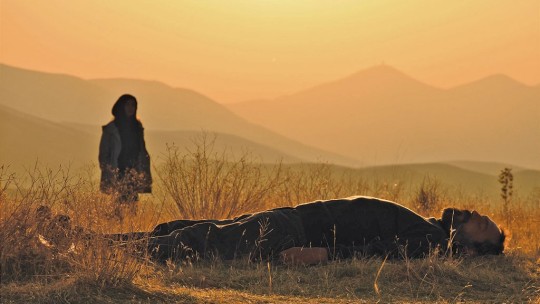
by Margot Harrison
Our streaming entertainment options are overwhelming — and not always easy to sort through. This week, I watched There Is No Evil, which won the Golden Bear at the Berlin International Film Festival weeks before the coronavirus outbreak shut down all such events.
Iranian director Mohammad Rasoulof (Manuscripts Don't Burn) made the anthology film in secret while appealing a prison sentence for making movies that the government deemed "propaganda against the system." As of an interview with Filmmaker magazine in May 2021, he was still free and working on his next film, though dogged by ominous updates from the authorities. You can see There Is No Evil via Vermont International Film Foundation's Virtual Cinema through June 30.
The deal
youtube
There Is No Evil is composed of four short films that share a common theme but no characters. The first (and titular) film details a day in the life of a family man (Ehsan Mirhosseini) who seems normal and pleasant in every way. (He literally saves a cat!) The surprise comes at the end.
In the second film, "She Said, 'You Can Do It,'" set in a prison, a young military conscript (Kaveh Ahangar) tries desperately to get out of his assignment to execute a condemned man at dawn. His refusal to kill contrasts with the attitude of the more jaded soldier (Mohammad Valizadegan) at the center of the third film, "Birthday," whose priority is getting three days' leave so he can propose to the woman he loves (Mahtab Servati).
Finally, the long-term consequences of such choices become clear in the fourth film, "Kiss Me," in which a German college student (Baran Rasoulof) visits her Iranian relatives and learns a family secret.
Will you like it?
There Is No Evil keeps surprising the viewer. Watching the first film — a drab, meticulous and devastating slice-of-life drama — in no way prepares us for the action-packed climax of the second film or the pastoral beauty and romanticism of the third one.
As the movie goes on, its settings shift, too, from the cramped urban cars and apartments of "There Is No Evil" and the tense chamber drama of "She Said, 'You Can Do It'" to the wide-open spaces of the last two chapters. "Birthday" takes place in lush green woods, with water (purifying, cleansing, mourning) as a recurrent motif. "Kiss Me" unveils a barren yet breathtaking mountainscape haunted by wolves.
Yet all four parts circle the same dark reality: State executions are commonplace in Iran. Though the guilt or innocence of the condemned people isn't central to the film, "Birthday" makes it clear that ideological dissidents are often among them. To refuse to perform an execution — like Pouya, the protagonist of the second chapter — is to risk joining their ranks.
Another constant in the film is stellar acting. If Rasoulof's plots sometimes seem a touch programmatic or reliant on coincidence, they're inhabited by characters who are fully human. In the first film, for instance, Mirhosseini endures the ups and downs of family life like a classic sitcom dad, with a bemused, amiable passivity that makes the story's twist both fitting and shocking.
Pouya, the conscript who refuses to kill, is initially a more off-putting character: He whines, schemes and even weeps, making us wonder if his fellow soldiers are right to dismiss him as shirking responsibility rather than making a meaningful statement. Watching this segment of There Is No Evil, I found myself realizing that American movie viewers, at least, have been conditioned to assume heroes must be stalwart and stoic, while cowards are sloppy and emotional.
That's not the case in Rasoulof's world. In this movie, resistance can be awkward and messy, while stoicism is sometimes the refuge of those who choose to tolerate the intolerable.
What about those who don't? We gradually learn that the rural landscapes of the last two films are places of exile, refuges for people who refuse to comply with the regime — like the island where director Rasoulof himself now lives, according to Filmmaker. (Read the interview for fascinating details of how he managed to camouflage this film's production, including a scene shot in a busy grocery store.)
While There Is No Evil is certainly a film about what Hannah Arendt called the "banality of evil," it also affirms and embodies the opposite possibility — in Rasoulof's words from the interview, "the beauty in spite of the hardship of resistance and saying 'No.'" Right now, that's a message of relevance to everyone.
If you like this, try...
The Salesman (2016; Amazon Prime Video, rentable): The nature of culpability is also a central question in this Oscar-winning film from Iranian director Asghar Farhadi (A Separation), in which a married couple struggles with the aftermath of an assault.
This Is Not a Film (2011; Kanopy, Mubi, the Criterion Channel): Iranian filmmaker Jafar Panahi made this documentary about his experiences under house arrest in secret and smuggled it to the Cannes Film Festival in a birthday cake.
0 notes
Text
Review: Banned Iranian filmmaker responds with blistering anthology ‘There Is No Evil’
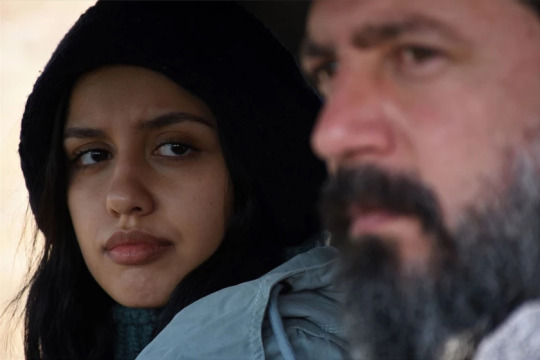
Baran Rasoulof and Mohammad Seddighimehr in the movie “There is No Evil.”(Kino Lorber)
by Robert Abele
May 14, 2021 8:31 Am Pt
The Times is committed to reviewing theatrical film releases during the COVID-19 pandemic. Because moviegoing carries risks during this time, we remind readers to follow health and safety guidelines as outlined by the Centers for Disease Control and Prevention and local health officials.
A well-oiled repressive state makes its citizens complicit in the crushing of dissent, a moral weight explored with exquisite, patient mastery in Iranian filmmaker Mohammad Rasoulof’s anthology film “There Is No Evil.” Four whirlpool-like stories of emotional dread surrounding the death penalty, they also reinforce the pulsing humanism in this autocratic country’s most fiercely committed storytellers.
Of course, you have to be fiercely committed to the power of film if to make one might put you behind bars. First detained in 2010 (along with celebrated director and occasional collaborator Jafar Panahi), Rasolouf has yet to serve his one-year prison sentence for the charge of making anti-government propaganda. But he’s also been under a 20-year filmmaking ban since 2017 — when his Cannes-feted clerical critique “A Man of Integrity” angered the regime — and is forbidden from leaving the country. To make “There Is No Evil,” therefore, Rasolouf used a strategic mix of production subterfuge and canny location choices.
The resulting film, however — which took the top prize at the Berlin International Film Festival last year, and is unsurprisingly banned in Iran — betrays no signs of something furtively made, like a guerrilla-style missive. In its elegantly photographed, classically told and acted mix of domestic scenes, bucolic settings, and character drama, it could sit right alongside a Hollywood epic or arthouse drama on a double bill. But when juxtaposed against a history of Iranian cinema that has often relied on child-centric allegory and non-specific narrative to make its societal critiques, “There Is No Evil” practically blisters with the intensity of specifically living in Iran as it exists now, as a state once believed to carry out the most executions of any country outside China.
That intensity is there in the occasionally trancing stare of the first story’s working husband and dad Heshmat (Ehsan Mirhosseini) as he punches out of his high-security job. We begin to sense that his life of unassuming domesticity — picking up his wife and daughter, shopping, chores, a mom visit, a mall dinner with the family — is no small bulwark against the realities of the other part of his day. That tension is also there, more openly, in the frightful eyes of anxious guard Pouya (Kaveh Ahangar), the protagonist of the second tale, “She Said ‘You Can Do It.’” Pouya is one of six military conscripts in a prison’s cramped sleeping quarters, desperate to avoid an act he’s sure will singe his soul: executing another human being. He hashes out various escape plans with his bunkmates, who have varying thoughts about Pouya’s rattled conscience regarding personal responsibility.
Iran’s enforced military service for young men is also the background of the soldier seen making his way to a secluded farmhouse in the third tale, “Birthday,” filmed with an eye for sylvan beauty and rustic melancholy by the cinematographer for all the stories, Ashkan Ashkani. Ostensibly on a three-day leave to celebrate the birthday of his fiancée Nana (Mahtab Servati) with her family, Javad (Mohammad Valizadegan) must also contend with the family’s grief over the recent death of their close friend. What plays out may feel deliberately engineered if one were to nitpick about plot, but in keeping with the movie’s themes of choice and consequence, it still packs a punch.
The last segment, “Kiss Me,” concerns the momentous visit a young medical student named Darya (Baran Rasoulof, the director’s daughter) makes to older beekeeping couple Barham (Mohammad Seddighimehr) and Zaman (Jila Shahi), who live quietly in a remote, dusty, sparsely populated area. In its simmering mix of vague foreboding and the richness of human connection, it’s a fitting conclusion, but particularly for how its big reveal acts as a defining finale for all the secretly filmed tales that make up “There Is No Evil”: stressing the long-term cost a tyrannical country’s legacy of capital punishment will have on how its people view love and security.
'There Is No Evil'
In Farsi with English subtitles
Not rated
Running time: 2 hours, 30 minutes
Playing: Starts May 14, Laemmle Royal, West L.A.; Laemmle Playhouse 7, Pasadena; and Laemmle Town Center, Encino; also available on Laemmle Virtual Cinema
#Iran#Cinema#There is no Evil#شیطان وجود ندارد#Los Angeles Times#LA Times#Robert Abele#Kino Lorber#Berlinale#Berlin International Film Festival#Mohammad Seddighimehr#Baran Rasoulof
0 notes